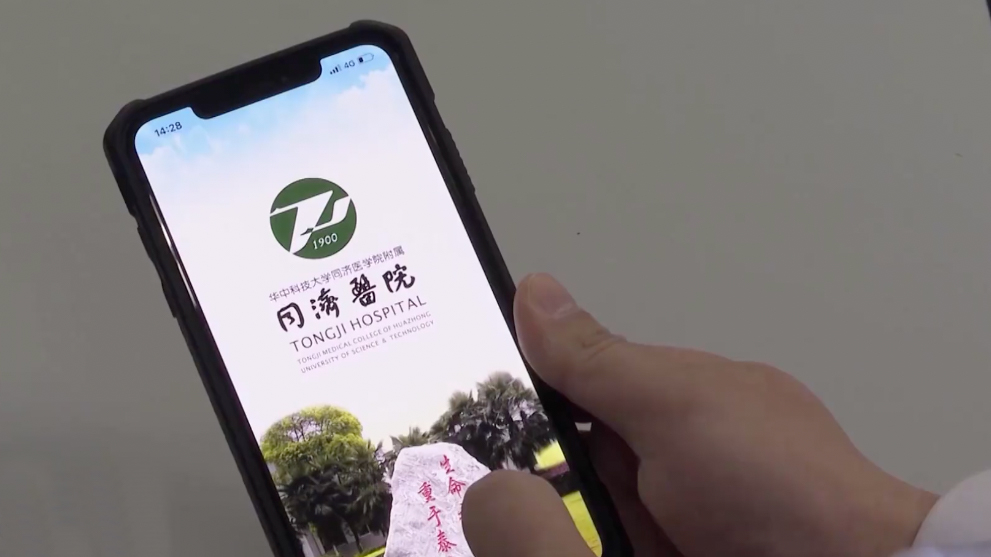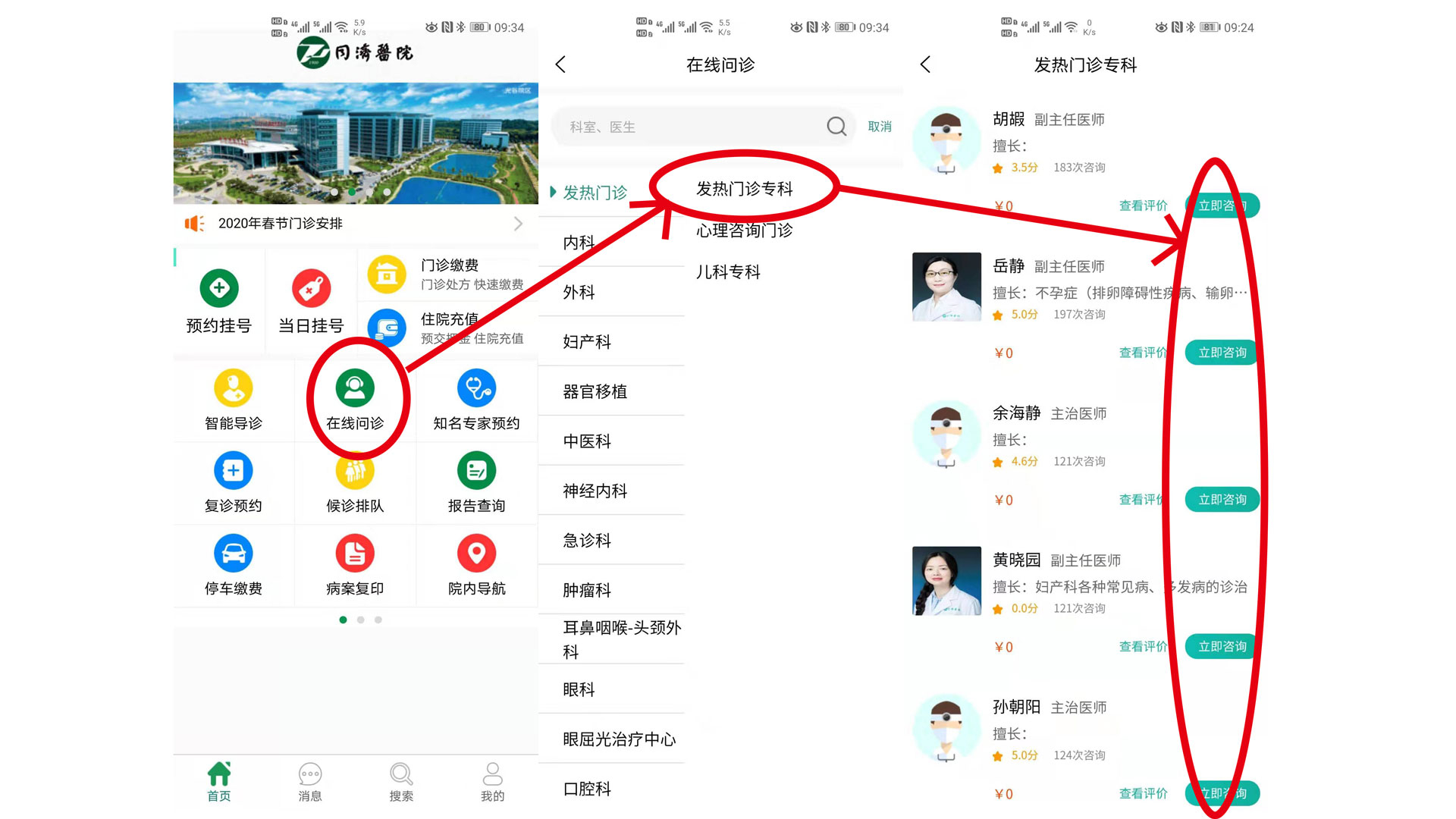03:06

In disease-hit Wuhan, there have been many cross-infection cases at hospitals where people running a fever and having common cold flooded in out of concern and were infected by the new coronavirus.
Now a smartphone outpatient app developed by Wuhan's Tongji Hospital is helping people stay out of crowded hospitals and reduce the risk of further infections.
It is called the "Mobile Tongji Hospital."
CGTN Digital checked the app on Friday morning, and discovered more than 100 doctors offering remote consultation on fever – one of many symptoms of a coronavirus infection – for free.
The app is available on both the iOS App Store and major Android app stores in China like Huawei App Gallery and Xiaomi Market. The app is only available in Mandarin Chinese.

Steps to get fever consultation on the Mobile Tongji Hospital app for Android /Mobile screenshot of app
Steps to get fever consultation on the Mobile Tongji Hospital app for Android /Mobile screenshot of app
Zhang Huilan, a respiratory doctor of the hospital, has been doing primary diagnosis through this online medical service for those who think they might have been infected by the new virus.
She said she received about 2,000 inquiries on the first day of the launch of the online service. A vast majority of the patients had simply panicked. Some people had ordinary fever, common cold, or just underlying illnesses. Zhang suggested they stay at home, and said there is no need to go to the hospital.
Many people are vulnerable to the common flu in winter, but they think they are infected by the new virus. So, when their body temperature goes up, they rush to hospitals that are already overcrowded because of the outbreak.
That increases the risk of cross infection.
To cope with the problem, the hospital launched an online outpatient service on their official app last Friday. As of Thursday morning, 46,000 people had used the service, largely relieving the hospital's burden and reducing the risks of more infections.
Patients can also upload their CT scans on the app so doctors can give more accurate diagnosis and suggest treatments.
Not all doctors listed on the app are specialized in respiratory and infectious diseases. Many doctors from the hospital's other departments have also joined in to help. China's general medical education system has equipped them with skills to conduct preliminary pneumonia diagnosis.
Cheng Cai, a cardiologist from the hospital said doctors are able to tell ordinary fever from real infections. "Of course, we will turn to respiratory professionals when we come across difficult cases."
Zhou Qi, a doctor from the hospital's gastroenterology department said all doctors at the hospital started to learn more about respiratory and infectious diseases right after the outbreak. She emphasized that clinicians can quickly learn to handle the preliminary pneumonia diagnosis.
In addition to the online service, the hospital has also launched psychological counseling applications.
Liao Jiazhi, deputy secretary of Tongji Hospital's CPC committee, stressed the online service is of great importance because it can help people make a correct assessment of their illnesses and offer further treatment advice, while also easing panic among the general public.
(Gong Zhe also contributed to the story.)